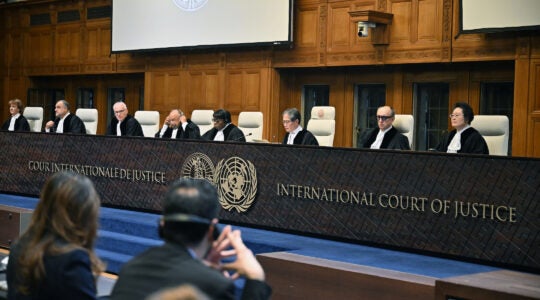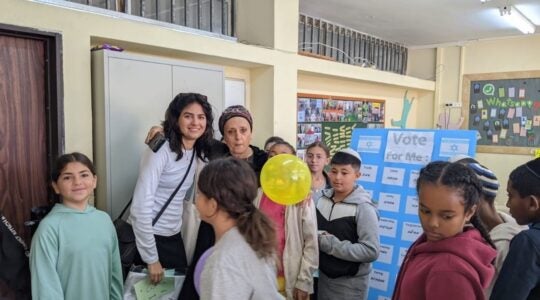The results of the 2025 World Zionist Congress election were certified this week after election tribunals and the Zionist Supreme Court settled disputes over fraudulent ballots and other irregularities.
The certification confirmed significant gains for slates led by haredi Orthodox Jews and that right-wing and religious parties together hold a majority in the American delegation for the first time.
The American Zionist Movement, which oversees the U.S. contest, announced on Sept. 3 that 224,969 valid votes were counted, nearly double the 2020 turnout and the highest level ever. Twenty-two slates competed for 155 American seats, which is almost one-third of the body’s elected membership, with the rest going to delegates from the rest of the Diaspora and Israel.
Delegates will convene for the World Zionist Congress in Jerusalem from Oct. 28 to 30 and deliberate on how to spend more than $1 billion in annual funding directed through the World Zionist Organization, Jewish Agency for Israel, Jewish National Fund-KKL, and Keren Hayesod.
First convened by Theodor Herzl in 1897, the congress is expected to be marked by battles that center not only on financial allocations but also on competing visions of Jewish identity, religious authority, and the future of Israel itself.
The final certification came after months of challenges that delayed the tally beyond the spring voting period, as disputes were reviewed by the AZM Tribunal and ultimately the Zionist Supreme Court in Israel. With those cases resolved, the results reflect both the unprecedented engagement of voters and the increasingly contested ideological spectrum of American Jewry.
“Based on the final election results that have been certified today, we can say without question that the Zionist movement in the United States is stronger than ever,” Herbert Block, AZM’s executive director, said in a statement. “American Jews’ record-breaking turnout means that the overall U.S. delegation to the 39th World Zionist Congress is positioned to have a greater backing and prominence than ever in advancing a multitude of high-priority Jewish and Zionist causes.”
The Reform movement’s Vote Reform slate remained the largest single faction, winning 47,648 votes and 33 delegates, a sharp increase in votes but still a modest decline from the 39 seats five years ago.
This election also saw the continued rise of Orthodox participation, a striking trend given that haredi Jews only recently entered the Zionist political arena in large numbers. Am Yisrael Chai won 21 seats and Eretz HaKodesh secured 19, giving the ultra-Orthodox community an unprecedented share of influence in a body it once shunned. Combined with the Orthodox Israel Coalition-Mizrachi, which won 18 seats, the religious right-wing bloc wields an outsized weight compared to its proportion among American Jews at large.
Centrist and progressive groups, which had formed the plurality in 2020, saw their position weaken. The Conservative movement’s Mercaz USA was an exception, increasing its tally to 19 delegates. The progressive Hatikvah slate dropped to eight, while the America-Israel Democracy Coalition, a new slate aligned with Israel’s anti-judicial overhaul protests, picked up three.
The election season was also marked by controversies and penalties. Shas, the Sephardi Orthodox party, was initially disqualified over fraudulent ballots before being reinstated and awarded two seats. The Zionist Organization of America’s slate lost a large share of its support after nearly 20% of its votes were invalidated, ending up with six seats compared to its far stronger showing in 2020. (A member of the slate also had a ban on his participation lifted.) Achdut Israel was disqualified altogether after investigators found false registration signatures and a pattern of fraudulent votes.
Other newcomers carved out smaller footholds. Aish Ha’am, affiliated with the Aish HaTorah movement, gained five delegates. Kol Israel and Vision, both of which had barely registered in 2020, each won four seats. The Israeli American Council, running for the first time, also captured four. Smaller lists such as Beyachad, Dorshei Torah V’Tzion, Jewish Future, ANU, and Herut North America each earned one or two delegates.
JTA has documented Jewish history in real-time for over a century. Keep our journalism strong by joining us in supporting independent, award-winning reporting.






